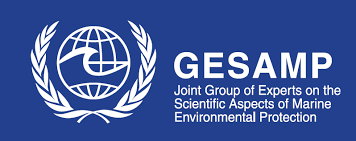Background
The Joint Group of Experts on Scientific Aspects of Marine Environmental Protection (GESAMP) was established in 1969, originally being sponsored by the IOC, the Food and Agriculture Organization (FAO), the International Maritime Organisation, and the World Meteorological Office (WMO). Since then, the International Atomic Energy Agency (IAEA), the United Nations (UN), the UN Environmental Programme (UNEP), the UN Industrial Development Organization (UNIDO), the UN Development Programme (UNDP), the International Seabed Authority (ISA) have all joined as sponsors of the GESAMP. In 2001 there was an independent, in-depth review of GESAMP resulting in an extensive revitalization process (review here). The role of GESAMP is to advise the UN system on aspects of marine environmental protection and has a vision to “provide authoritative, independent, interdisciplinary scientific advice to organizations and Governments to support the protection and sustainable use of the marine environment.”
UK Contributions
GESAMP has seventeen members – four of which are represented by the UK:
- UK Point of Contact: GESAMP Vice-Chair: Tracy Shimmield (Lyell Centre)
- Alex Baker (UEA)
- Peter Kershaw (Consultant)
- Chris Vivian (Cefas)
GESAMP has had around 50 different Working Group and Task Teams through the years, each one created to carry out individual studies and assessments when requested by the Sponsoring Organizations. Of the nine current active Working Groups (WG), the UK involvement is as follows:
WG 1: Evaluation of Harmful Substances Carried by Ships
This WG leading agency is the IMO and was established in 1974 to evaluate the environmental hazards of harmful substances carried by ship and provide related advice.
UK Contact: Lars Christian Espenes (Technical Secretary of EHS WG, IMO)
WG 34: Ballast Water
This WG was established in November 2005 to review any proposals submitted to IMO in preparation for the BWM Convention for approval of Ballast Water Management Systems (BWMS) that make use of ‘Active Substances’.
UK Contact: David Smith (PML)
WG 38: Atmospheric Input of Chemicals to the Ocean
This WG was set up in 2008 and the lead agency is the WMO. The WG formed due to the concern regarding natural and anthropogenic atmospheric deposition in the ocean and the impact that has on ocean chemistry, biology, biogeochemistry and the climate. The UK has hosted workshops for this WG, has members input to the group and is a co-Chair.
UK Contact: Tim Jickells (UEA)
WG 40: Sources, Fate and Effects of plastics and micro-plastics in the marine environment
This WG has the IOC and UNEP as the leading agencies and was formed in 2012 from the recommendation of the GESAMP emerging issue programme when the question of the degree to which micro-plastics and associated chemical loads present a risk to organisms. The UK chairs this group and has several UK representatives.
UK Contact: Peter Kershaw (Consultant)
WG 41: Working Group on Marine Geoengineering
This WG leading agency is the IMO, supported by the IOC and WMO and formed in 2015. This group was created to better understand the potential environmental, social and economic impacts of different marine geoengineering approaches on the marine environment, and to provide advice to the London Protocol Parties. The UK co-chairs this group.
UK Contact: Chris Vivian (Cefas)
WG 42: Impacts of Wastes and Other Matter in the Marine Environment from Mining Operations Including Marine Mineral Mining
This WG is co-sponsored by the IMO and UNEP and formed in 2017 to provide independent advice on what environmental impacts could arise both from land based and marine minerals mining. The UK chairs this group.
UK Contact: Tracy Shimmield (Lyell Centre)
WG 43: Sea-based sources of marine litter
This WG was formed in 2019 and has the FAO and IMO as leading agencies, with co-sponsorship from UNEP. The primary aim is to build a broader understanding of sea-based sources of marine litter, in particular from the shipping and fishing sectors. This includes understanding the relative contribution of different sources, analysis of plastic use and management and the range of impacts from sea-based sources of marine litter.
UK Contact: David Santillo (Greenpeace Research Laboratories, University of Exeter)
WG 44: Biofouling Management and Non-Indigenous Species
This WG recently formed and is led by the IOC with the IMO and UNEP as co-sponsors. The overall objective of WG 44 is to develop a wider understanding of the role of all maritime industries in introduction and spread of non-indigenous species (NIS) via biofouling.
UK Contact: David Smith and Anna Yunnie, both of PML, have been selected as nominated experts.
